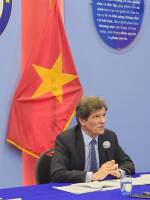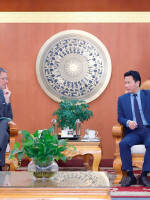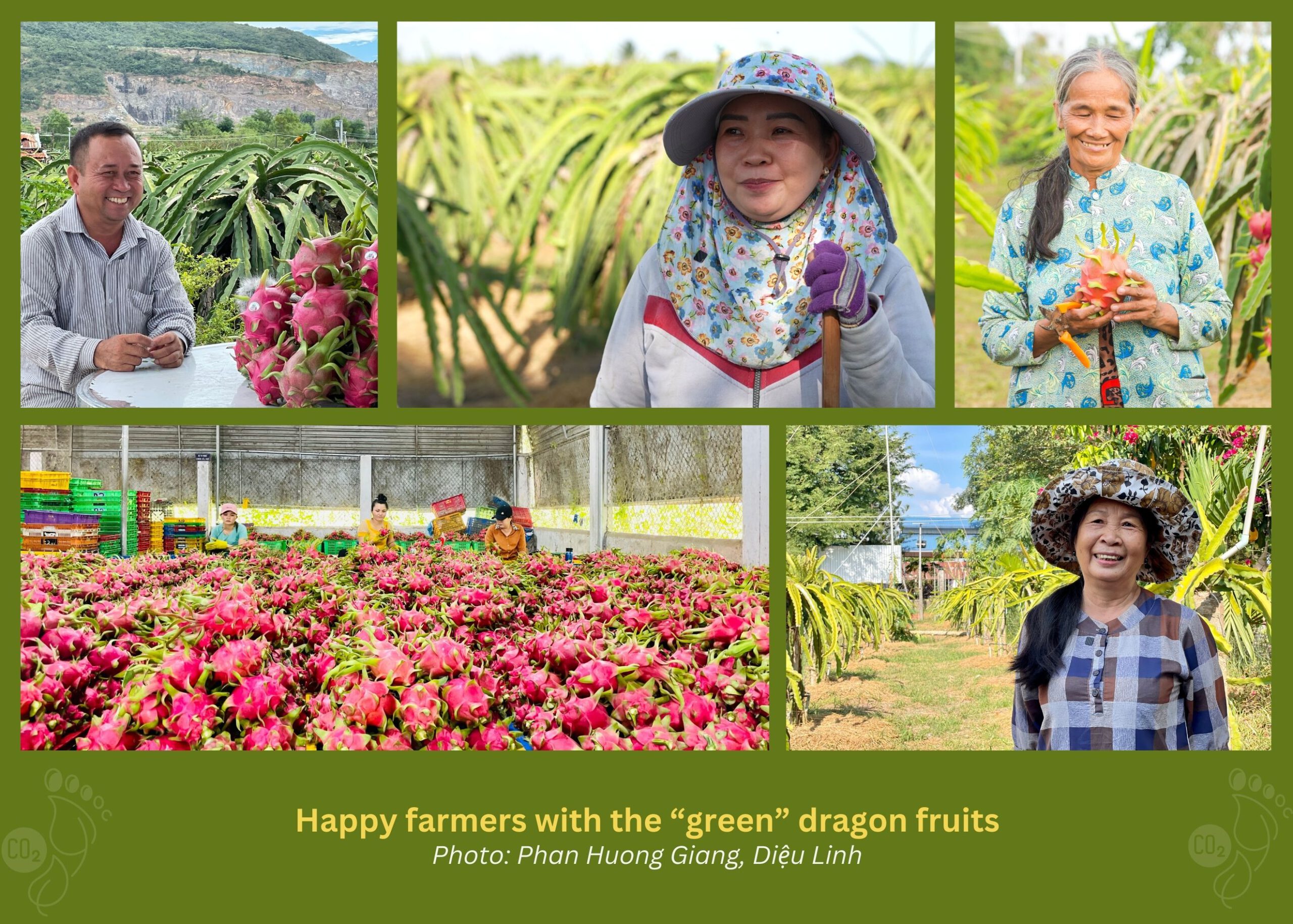
Vietnam’s agriculture is facing unprecedented challenges due to erratic rainfall, rising temperatures, and extreme weather events. These pressures threaten the entire food chain, as climate change substantially disrupts the traditional weather-based agriculture practices. Compounding this, the misuse of fertilizers and pesticides often generate additional emissions further exacerbating climate change’s effects.
The “Accelerating Private Sector Engagement in Climate-Resilient and Low-Emission Investment Opportunities in Viet Nam’s NDC 2019-2023” project was launched in response to these challenges. This innovative project, implemented by the Ministry of Agriculture and Rural Development and UNDP, demonstrates how agriculture businesses and cooperatives can contribute to fast track the progress of Vietnam Nationally Determined Contributions (NDC) goals.
Mr. Le Minh Hoan, the Minister of Agriculture and Rural Development, emphasized the country’s focus on restructuring the agricultural sector. He highlighted that “Viet Nam is developing sustainable agriculture and rural areas, with the farmer as the center in the transition and adaptation to new trends of free trade, climate change, and smart agriculture.”
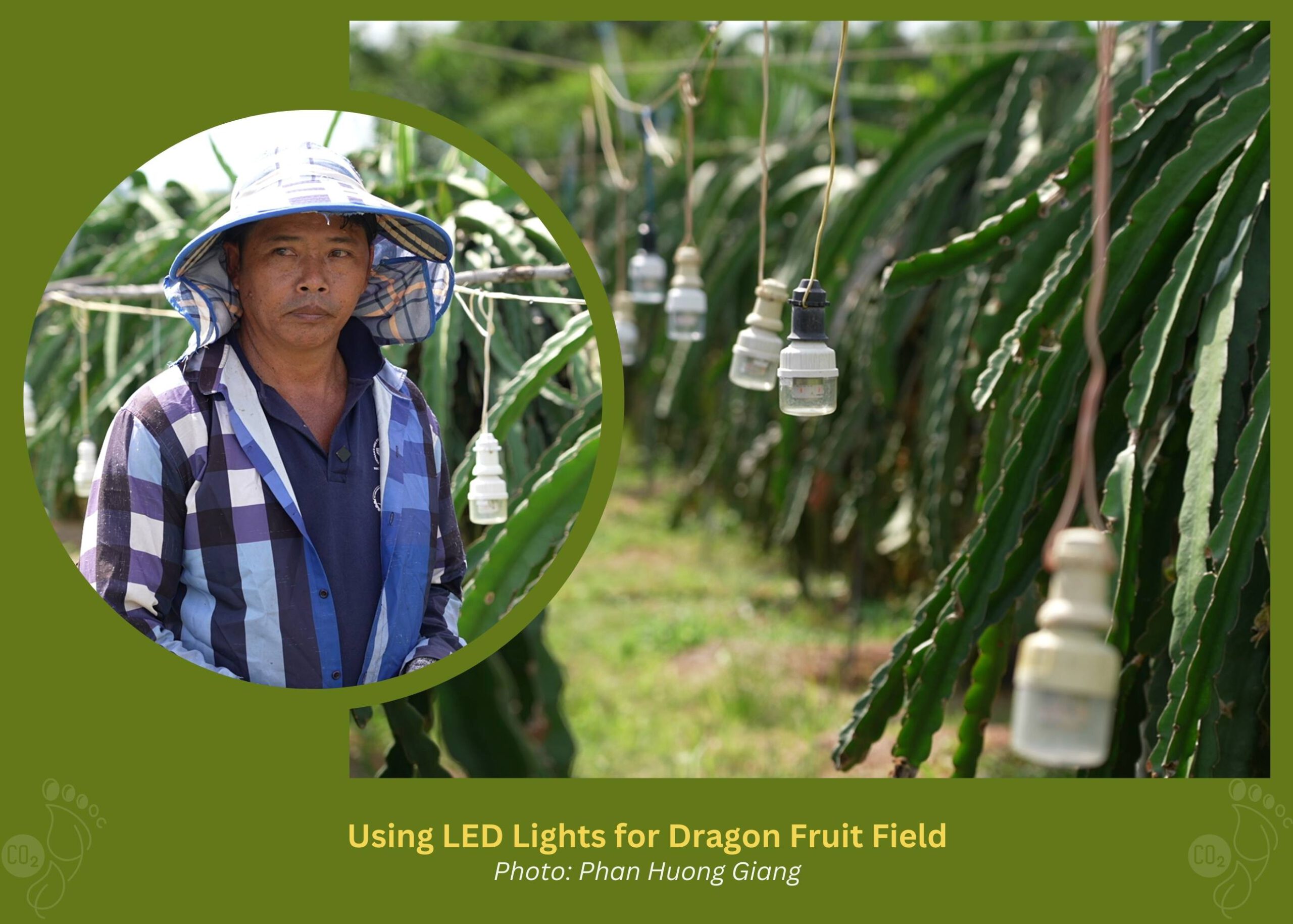
Greener Production Models for Dragon Fruit in Binh Thuan and Sustainable Shrimp in Bac Lieu
In Binh Thuan province, progress has been made by local agriculture cooperatives and businesses in investing in greener technologies for dragon fruit production. These include shifting to LED lighting, drip irrigation, solar-powered drying and processing technologies, planting timber trees surrounding the dragon fruit farms, and expanding farms with Global G.A.P certification. These green technologies have enhanced productivity and significantly reduced the environmental footprints. Furthermore, the project also facilitated the development of e-commerce platforms and trained local farmers in running creative livestreaming campaigns to expand their horizons of domestic and global market access.
Mr. Tam shared insights on the economic benefits of these green innovations. “In the past, with the 22w bulb, the electricity cost for lighting 1,000 pillars over 22 nights was around 17 to 18 million dong. However, with this 9W bulb, illuminating 1,000 pillars for the same duration now only costs 5 to 6 million dong in electricity: that’s a significant advantage. Secondly, we adopted the e-tracing system. We need to move in an eco-friendly direction for the products permitted in the market and those that benefit the environment. The cost isn’t high, yet it yields effective production,” he said.
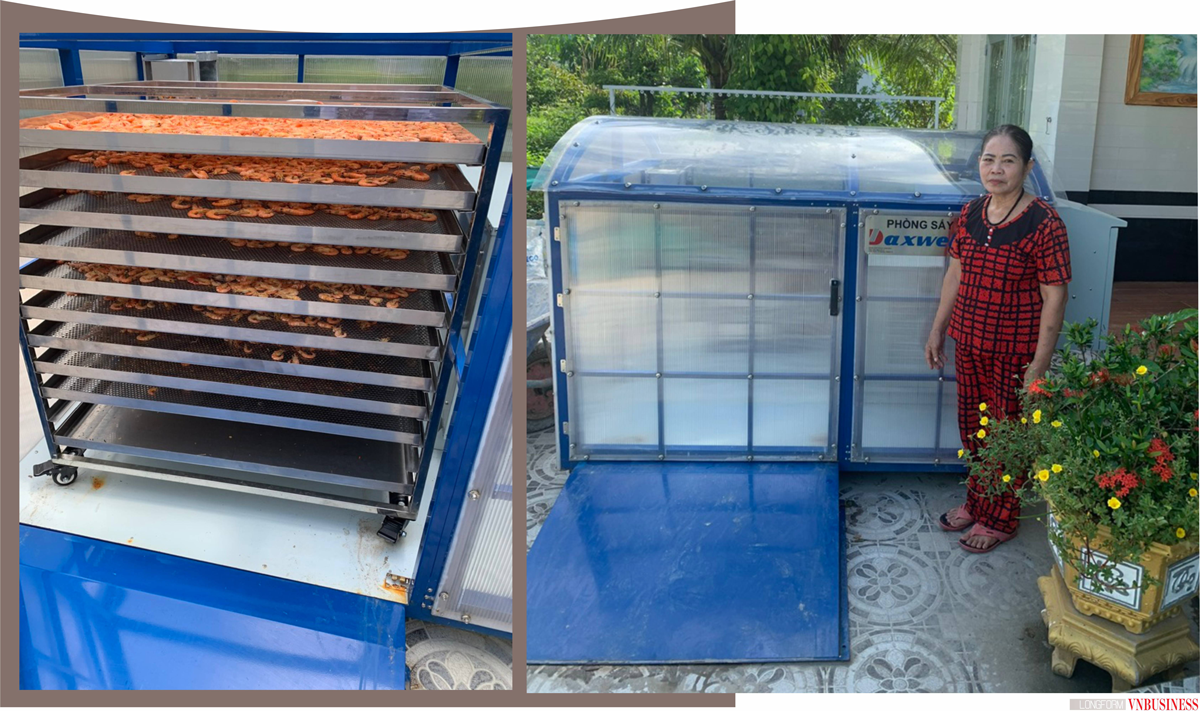
At Thanh Dat Seafood Cooperative in Long Dien commune, Dong Hai district of Bac Lieu province, shrimp drying equipment using solar energy brings high efficiency for processing and consuming shrimp products. This Seafood Cooperative is one of the leading units in Bac Lieu in implementing ASC-certified shrimp farming (Sustainable Shrimp Standard), with three products that have achieved 3-star OCCOP certification: Shrimp crackers, shrimp floss, and dried shrimp.
Ms. Tran Thuy Sang, Head of the Women’s Group of the Seafood Cooperative, said that the cooperative currently has 39 households specializing in intercrop shrimp-rice farming and shrimp-mangrove farming. Each year, the output of the cooperative reaches 4.5-5 thousand tons of naturally fresh shrimp.
A few years ago, the cooperative was unable to generate good incomes for its members. Local traders often pressured farmers to lower the price of natural shrimp as farmers have to sell ‘fresh” immediately after harvest. Thus, Thanh Dat cooperative members decided to shift to producing dried shrimp products. It was however, not easy gain, as drying shrimp manually took time, and the rate of spoilage was very high, often it rained while they laid the shrimp for natural drying.
In 2023, the cooperative received the project’s co-finance for shifting to combined shrimp drying technology using a solar energy drying house. With the solar shrimp drying house, each batch can produce 50 -70 kg of shrimp in about 4 hours under natural sunlight and when it rains, the heat trapping system from the roofing of the drying chamber will continue to provide energy for the drying process. As a result, the dried shrimp reaches standard humidity, the rate of food loss is almost zero, the quality of the dried shrimp is of optimal quality, food safety and hygiene are preserved, and the shrimp can be sold at a competitive price in the domestic markets.
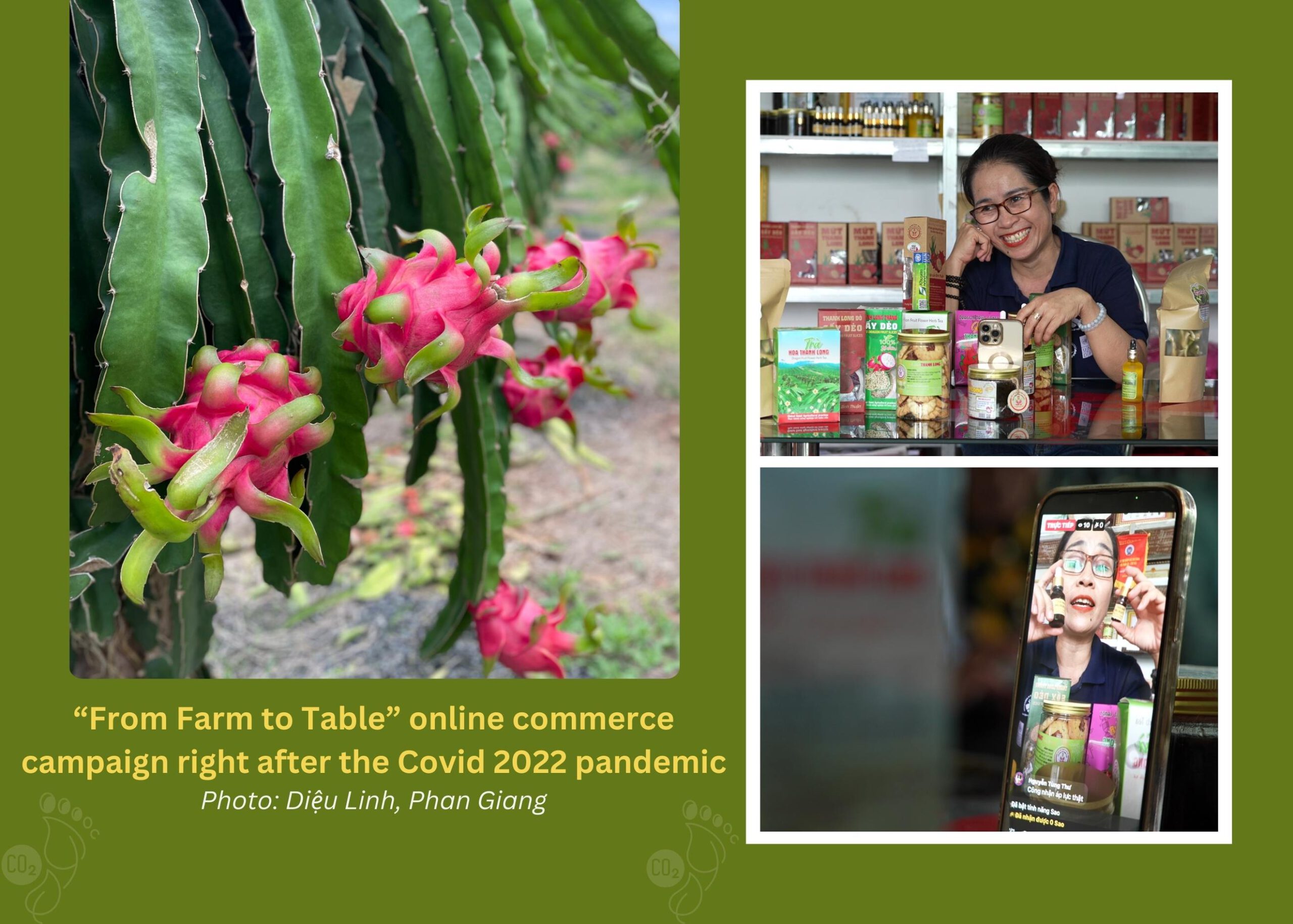
Digital Transformation and Carbon Footprint Tracking
The project commenced amidst the COVID-19 pandemic, marked by numerous business interruptions and production halts. To aid the recovery, the project provided green recovery support packages to households and businesses. Furthermore, the project integrated innovative e-commerce solutions, exemplified by the “From Farm to Table” online commerce campaign launched during the Lunar New Year in the aftermath of the pandemic.
The project’s influence extends beyond immediate recovery efforts. It has attracted significant attention from businesses and individuals, fostering a shift towards a sustainable, clean, and secure production and business system. The project continues to draw households affiliated with targeted cooperatives and business entities, encouraging them to invest in, upgrade techniques, and engage in sustainable and eco-friendly farming practices. This engagement is supported by various training initiatives provided by the project.
A key innovation of the project is the digital transformation in the agricultural sector, particularly the introduction of carbon footprint tracking tools in the dragon fruit and shrimp industries. This technology allows consumers to trace the origins of their food through a simple QR scan, ensuring its “green” credentials. This serves as a quality assurance tool and a gateway for Vietnamese produce into the global market, circumventing potential export tariffs linked to carbon emissions. The technology aids in forecasting the output and harvesting dates of each farming household, thus enhancing their business planning capabilities.
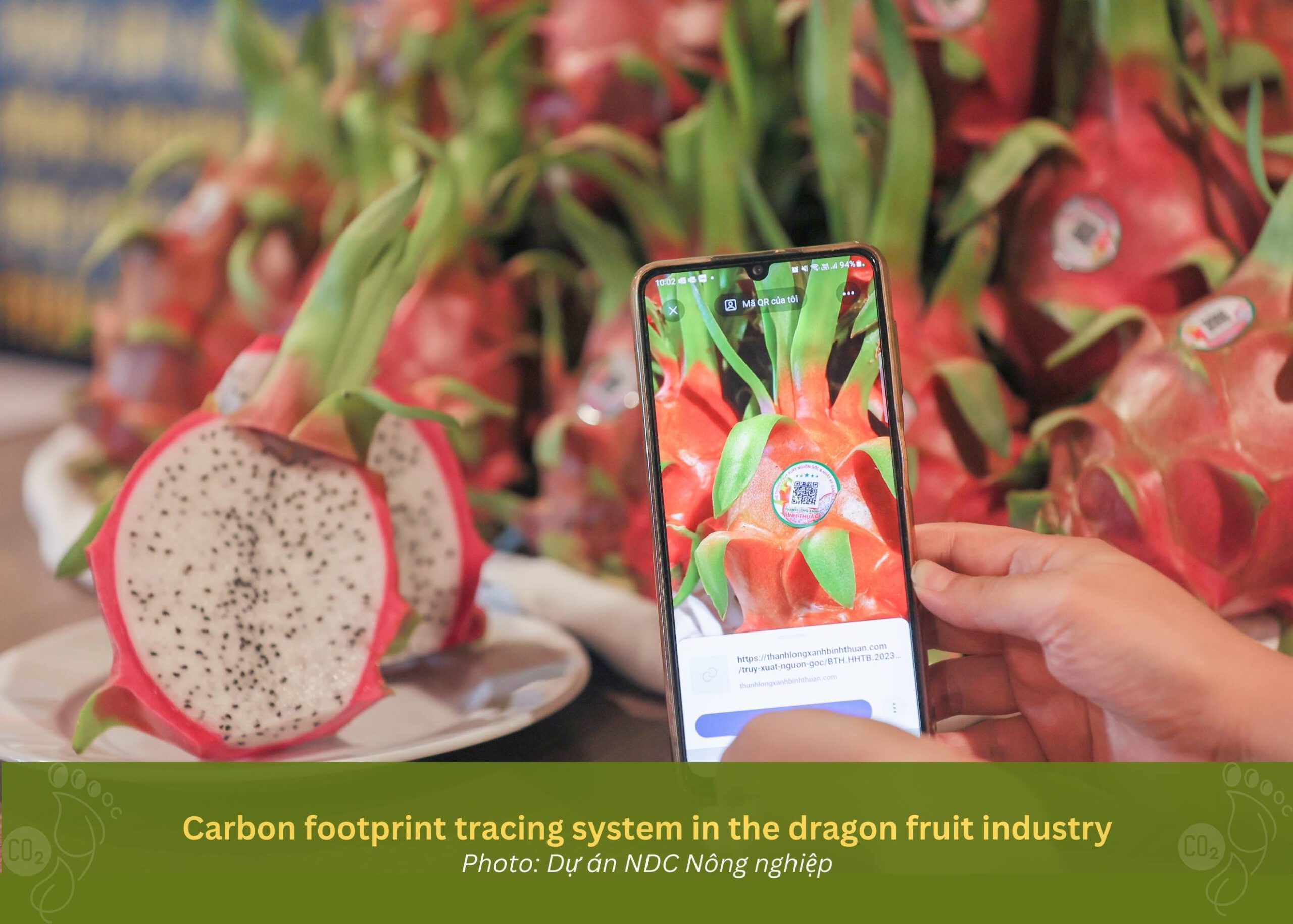
Fostering Agricultural Expertise and future green farming practices
Capacity-building has been central to the project’s success, equipping provincial stakeholders and businesses with the necessary tools to develop low-carbon, sustainable value chains. This approach fosters long-term quality investments and green business development.
In Bac Lieu province, training sessions have been held to share knowledge on environmentally friendly shrimp farming techniques, which 53% female and 70% ethnic minority Kh’mer attended. The project has also promoted smart shrimp farming techniques, such various shrimp pond rotation methods, shrimp-rice intercropping, and seedling management. Innovations like solar drying technologies and recycling shrimp pond wastes as fertilizers have been introduced.
Mr. Lê Thanh Vân of the Thanh Cong 1 Cooperative in Gia Rai Town, Bac Lieu, shared his experiences pre-and post-training. “Beforehand, we did not know shrimp farming techniques. Typically, producing one kilogram of shrimp would emit approximately 15 kilograms of carbon. However, after learning the shrimp-raising technique, the carbon emissions for one kilogram of shrimp were reduced to just 1.5 kilograms. Subsequently, they re-assessed my land, confirming that there was no longer any methane.”
Mr. Nguyen Trung Hieu, Deputy Director of the Department of Agriculture and Rural Development of Bac Lieu province, emphasized, “We are also identifying our main farming models to reduce emissions and shrimp farming models such as rice-shrimp and mangrove shrimp. This is a sustainable model in shrimp production in the future.”
Ms. Ramla Khalidi, UNDP Resident Representative in Viet Nam, highlighted the project’s pioneering role in tracking the carbon footprint of Vietnamese agricultural products. “This project has shown us for the first time that Vietnamese agricultural products have a traceable carbon footprint and that helps to ensure sustainable agricultural development and offers the opportunity for climate-responsible and climate-smart agriculture that contributes to sustainable development and the achievement of the global climate goals.”
This project has contributed to a future where green business landscapes flourish through collaboration and innovation, to a low-carbon contribution and net-zero in line with Viet Nam’s commitments. Moreover, it is a future in which our hardworking farmers are at the center of sustainable and prosperous agricultural landscapes, leading happier and healthier lives.
Phan Huong Giang – UNDP Viet Nam, Media and Communications Analyst, Climate Change and Environment


